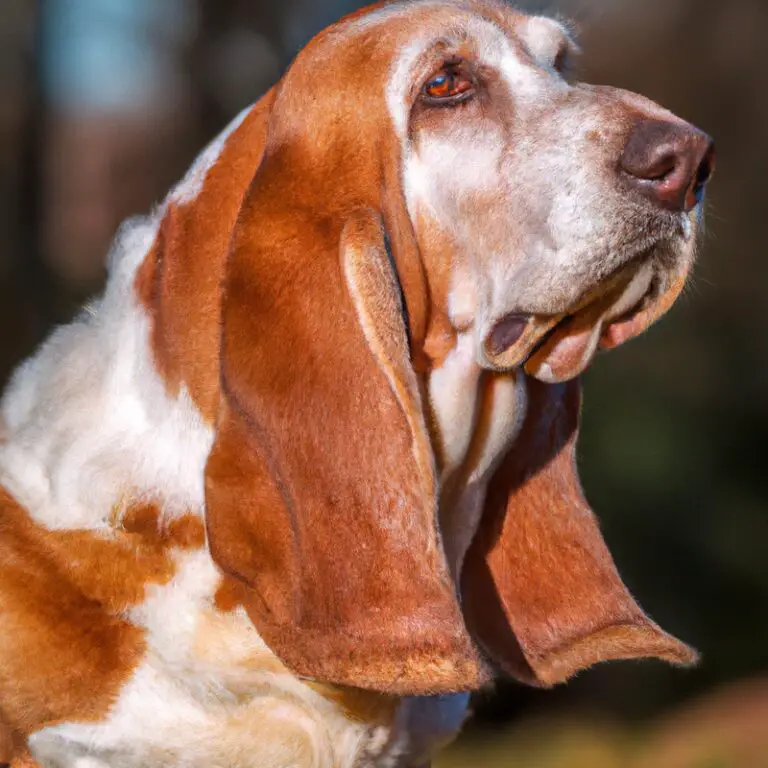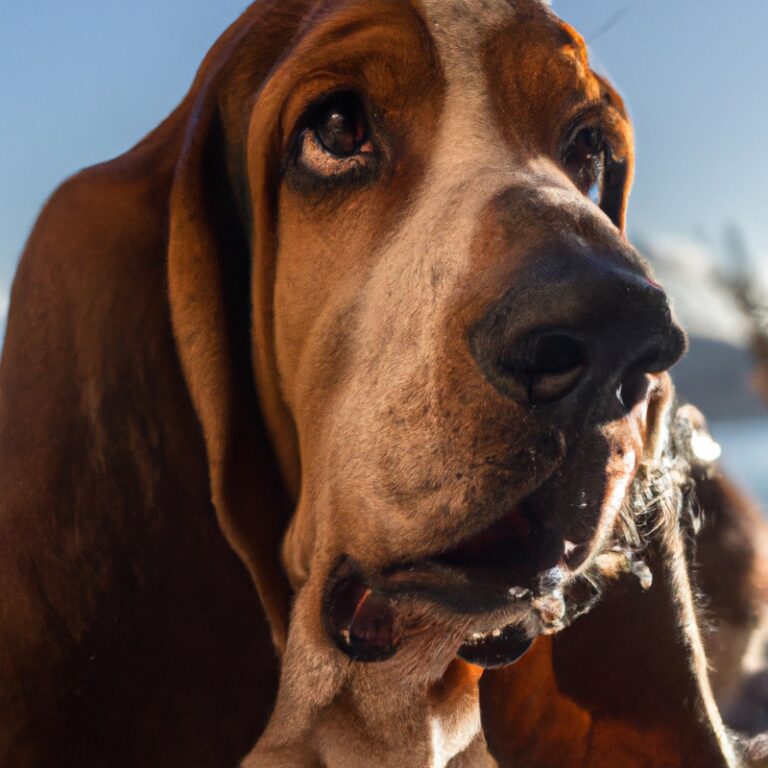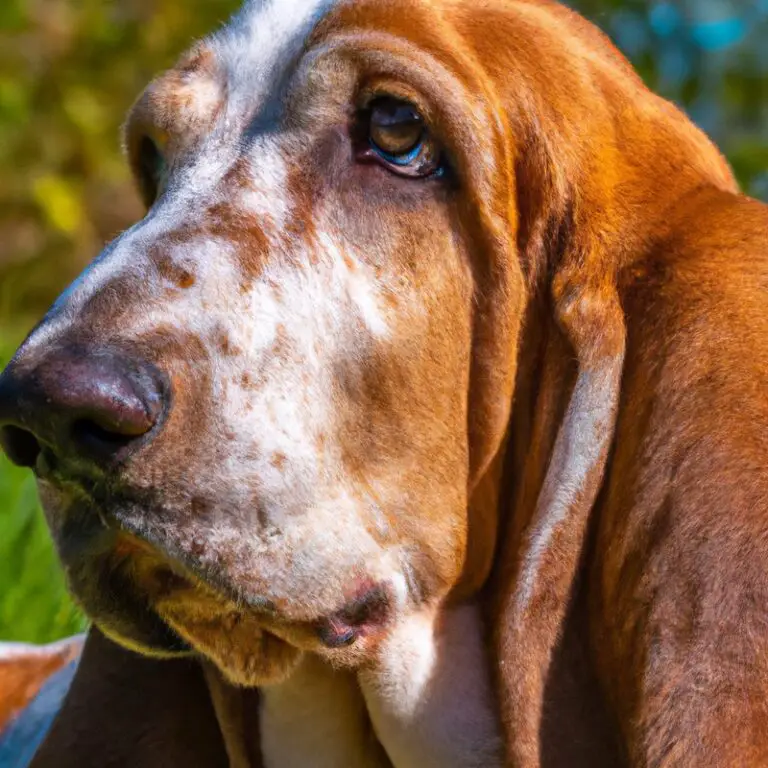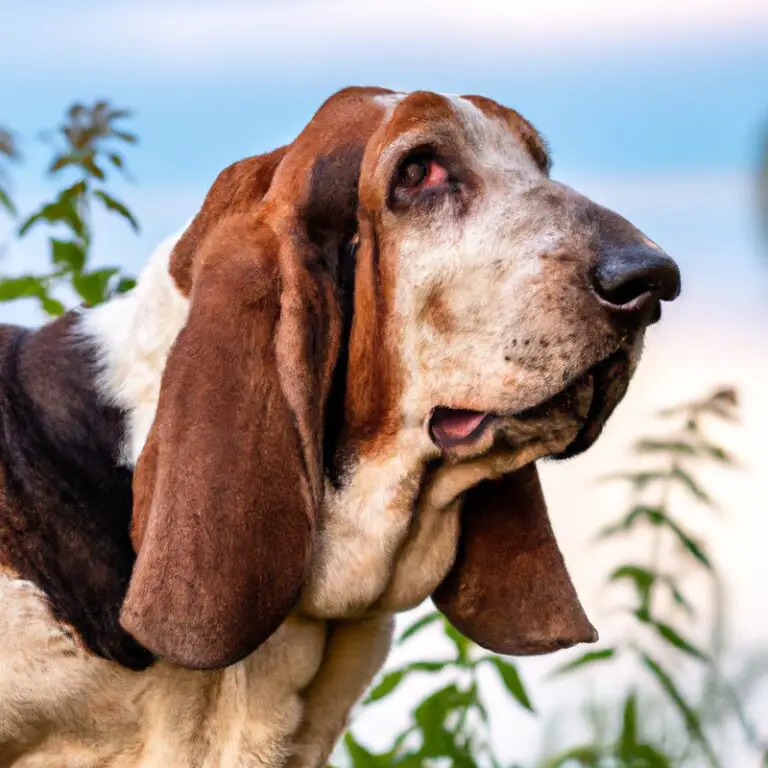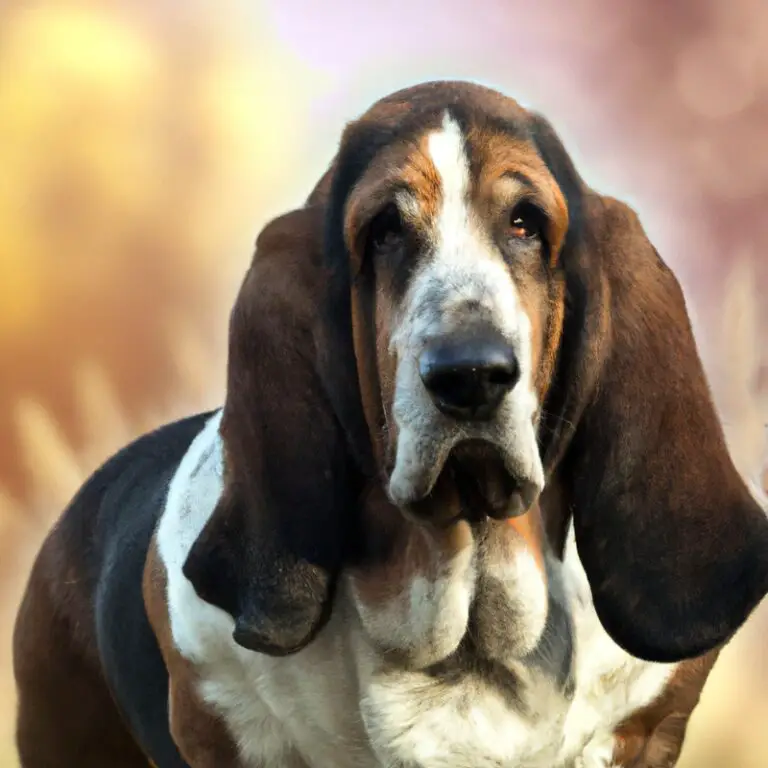What Are The Exercise Needs Of a Senior Basset Hound?
Key Takeaways:
- Moderate exercise is sufficient for senior Basset Hounds.
- Daily walks and mental stimulation are important for their well-being.
- Avoid excessive exercise to prevent joint and back problems.
- Tailor exercise routines to accommodate their physical limitations.
Hey there, dog lovers! Are you the proud owner of a senior Basset Hound?
Well, then you’re in for a treat because today we’re diving into the fascinating world of exercise needs for these adorable, droopy eared pups.
You might be wondering, “Do older Basset Hounds need exercise?” My friend, the answer is a resounding YES! Regular exercise is vital for both their physical and mental well-being.
But what exactly does that mean for your aging furry friend?
Sit tight as I break down the importance, factors to consider, recommended routines, and precautions you should be aware of when it comes to exercising your senior Basset Hound.
Get ready to keep those tails wagging and those legs moving!
| Exercise Needs | |
|---|---|
| Frequency | Low to moderate |
| Duration | Short to moderate |
| Type | Gentle exercise |
| Benefits | – Promotes joint flexibility and mobility – Provides mental stimulation – Helps maintain healthy weight – Improves overall well-being |
| Considerations | – Avoid high-impact activities – Monitor for signs of fatigue or discomfort – Adapt to individual health conditions – Allow ample rest breaks – Consult veterinarian for specific recommendations |
Importance of exercise for senior Basset Hounds
Physical and mental health benefits of exercise
Regular exercise provides numerous physical and mental health benefits for senior Basset Hounds.
It helps maintain a healthy weight, improves cardiovascular fitness, and strengthens muscles and joints.
Exercise also aids in preventing obesity, diabetes, and other health conditions.
Additionally, physical activity promotes mental stimulation and helps alleviate stress and anxiety by releasing endorphins.
It boosts cognitive function and can prevent age-related cognitive decline in senior Basset Hounds.
Overall, exercise is essential for supporting the overall well-being and longevity of senior Basset Hounds.
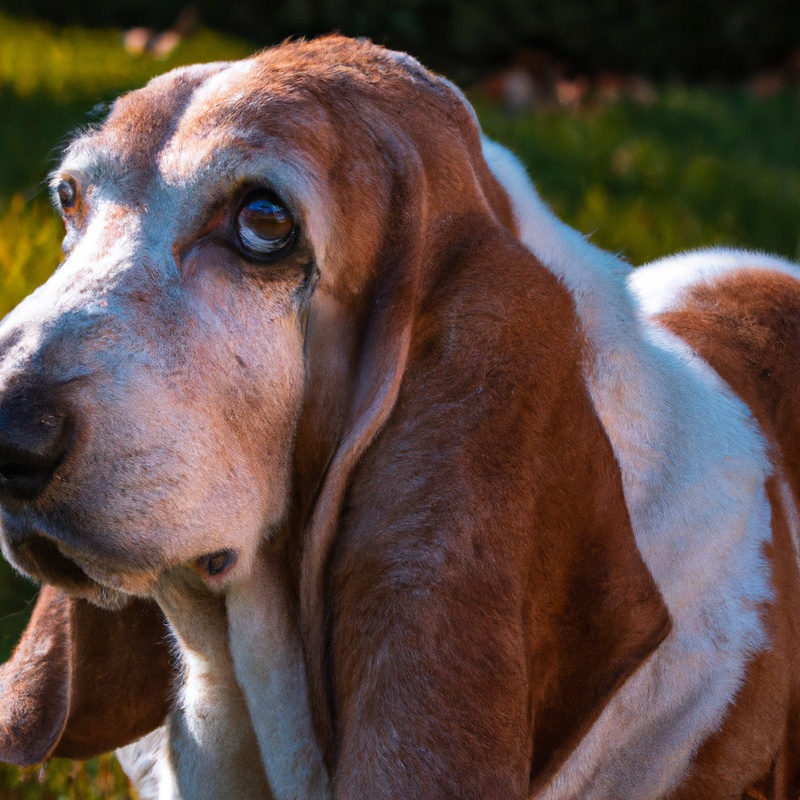
Risks of insufficient exercise for senior Basset Hounds
Insufficient exercise for senior Basset Hounds can lead to several risks.
Firstly, it can contribute to weight gain and obesity, which puts a strain on their joints and can lead to arthritis.
Secondly, a lack of exercise can result in muscle wasting and decreased mobility, making it harder for them to move around comfortably.
Thirdly, insufficient exercise can lead to behavioral issues such as boredom, anxiety, and destructive behavior.
Regular exercise is essential to keeping senior Basset Hounds healthy, active, and mentally stimulated.
Factors influencing exercise needs
Age and health condition
Age and health condition are important factors that influence the exercise needs of a senior Basset Hound. As dogs get older, their energy levels and physical abilities may decrease.
It’s essential to consider any health conditions or mobility issues that your senior Basset Hound may have.
Consulting with a veterinarian can help determine the appropriate type and intensity of exercise for your senior Basset Hound, taking into account their age and health condition. Regular exercise tailored to their needs can help them stay healthy and happy.
Size and weight
When it comes to the exercise needs of a senior Basset Hound, size and weight play an important role.
Basset Hounds are known for their large, heavy bodies with short legs.
Due to their unique physique, these dogs may have limitations in terms of endurance and agility.
Their weight can put strain on their joints and make them more prone to injuries.
It is important to consider their size and weight when designing an exercise routine to ensure their safety and well-being.
Regular exercise can help maintain a healthy weight and promote overall fitness.
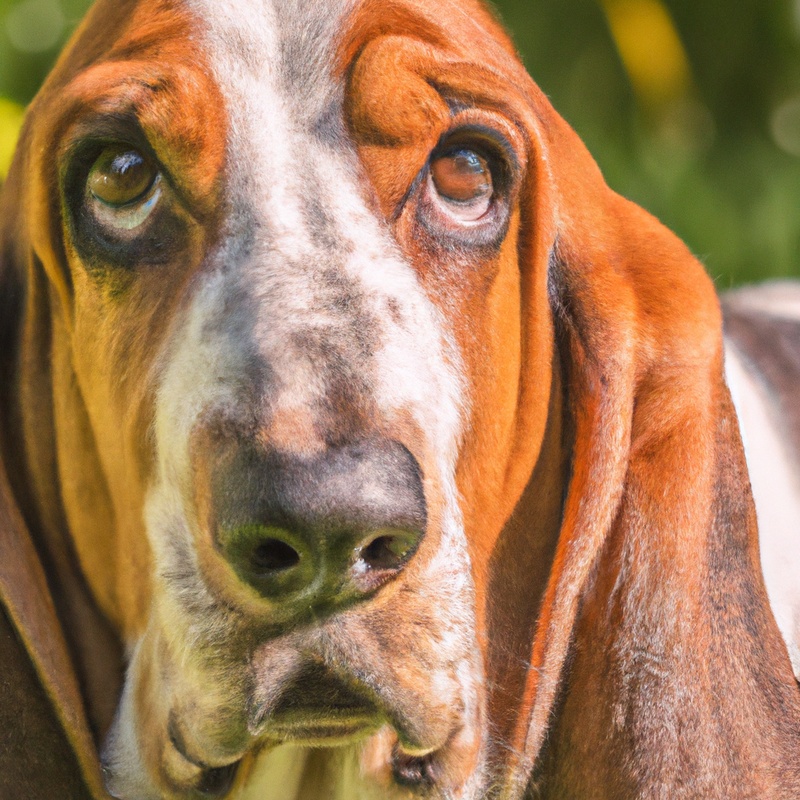
Activity level and energy
Activity level and energy play a vital role in determining the exercise needs of a senior Basset Hound.
Every dog is unique, and some may have higher energy levels and activity requirements than others.
It’s important to assess your Basset Hound’s individual energy level and provide exercise accordingly.
Regular exercise helps maintain their physical health, prevents obesity, and keeps their mind stimulated.
A senior Basset Hound with a lower activity level may require shorter and less intense exercise sessions, while a high-energy dog may need longer and more strenuous activities.
Adjusting the exercise routine according to their energy level is key to keeping them happy and healthy.
Recommended exercise routines
Low-impact activities for senior Basset Hounds
For low-impact activities that are suitable for senior Basset Hounds, consider options that are gentle on their joints and muscles. Walking at a slow and steady pace allows them to get exercise while being easy on their bodies.
Swimming is another great low-impact option, as the water supports their weight and reduces stress on their joints.
Puzzle toys can also provide mental stimulation and a low-impact way to keep their minds engaged. Always remember to monitor their comfort levels and adjust the activities accordingly.
Duration and frequency of exercise
The duration and frequency of exercise for a senior Basset Hound will depend on their age, health condition, and energy level.
Generally, aim for at least two short walks per day, around 15-20 minutes each.
This helps to keep them active and maintain a healthy weight.
However, be mindful of their limitations and adjust the intensity and duration of exercise accordingly.
It’s important to consult with your veterinarian to ensure you are meeting your senior Basset Hound’s specific exercise needs.
Exercise modification for joint or mobility issues
For senior Basset Hounds with joint or mobility issues, exercise modifications can help keep them active and comfortable.
Instead of high-impact activities, focus on low-impact exercises like swimming or walking on soft surfaces.
Gradually increase the duration and frequency of exercise, but be mindful of your dog’s limitations.
Consider providing joint supplements and using supportive measures like ramps or stairs.
Regular check-ups with a veterinarian can ensure the appropriate exercise modifications for your senior Basset Hound.
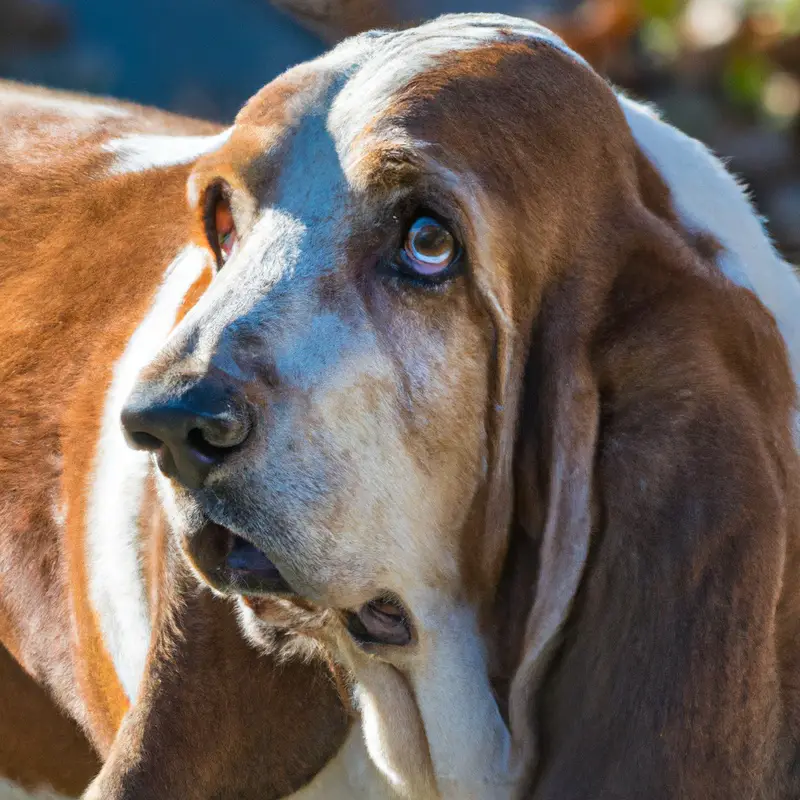
Exercise guidelines and precautions
Consulting with a veterinarian
Consulting with a veterinarian is essential when determining the exercise needs of a senior Basset Hound.
A veterinarian can assess the dog’s overall health and any underlying conditions that may impact their exercise routine.
They can provide guidance on appropriate activities, duration, and frequency of exercise based on the dog’s age, weight, and energy level.
A vet can also offer advice on modifying exercises for joint or mobility issues.
Regular check-ups with the vet will ensure the exercise routine is safe and suitable for the senior Basset Hound.
Incorporating rest and recovery periods
Rest and recovery periods are essential for senior Basset Hounds.
They help prevent overexertion and reduce the risk of injuries or physical strain.
During exercise, it is important to allow your Basset Hound to take breaks and rest when needed.
Incorporating rest periods in between activities can help them recover and regain their energy.
Additionally, providing a comfortable and quiet space for them to relax after exercise is important for their overall well-being.
Monitoring their behavior and energy levels can help you determine when they need rest.
Monitoring signs of exhaustion or discomfort
Monitoring signs of exhaustion or discomfort is essential when exercising a senior Basset Hound. Look out for excessive panting, drooling, or difficulty breathing, which may indicate overheating.
Signs of fatigue, such as slowing down, lagging behind, or lying down, should also be monitored.
Additionally, watch for any signs of discomfort, such as limping or favoring a particular leg, which could indicate pain or injury. Pay attention to your dog’s body language and behavior, and adjust the intensity and duration of exercise accordingly to ensure their well-being.
Mental stimulation for senior Basset Hounds
Importance of mental stimulation
Mental stimulation is vital for senior Basset Hounds as it keeps their minds active and engaged. It helps prevent boredom and the associated behavioral issues that can arise.
Mental exercise can be beneficial for their overall well-being and cognitive health.
Providing them with enrichment activities and puzzles can challenge their brains, promote problem-solving skills, and prevent mental decline. Interactive toys and games can also help strengthen the bond between you and your furry friend.
So, don’t forget to give your senior Basset Hound plenty of mental stimulation to keep them happy and sharp!
Enrichment activities and puzzles for mental exercise
Enrichment activities and puzzles are fantastic ways to provide mental exercise for your senior Basset Hound.
These activities stimulate their minds, keep them engaged, and prevent boredom.
Consider interactive toys that dispense treats when your dog solves a puzzle or plays with them.
Hide treats around the house and encourage your Basset Hound to find them using their nose.
Engage them in scent games or teach them new tricks.
Puzzle games like finding hidden toys or solving treat puzzles can also provide mental stimulation.
Remember, mental exercise is just as important as physical exercise for your senior Basset Hound’s overall well-being!
Final Verdict
As an expert in canine health and well-being, I strongly believe that exercise is crucial for the physical and mental health of senior Basset Hounds. Regular exercise helps prevent obesity, maintain joint flexibility, and reduce the risk of age-related diseases.
Factors such as age, health condition, size, and energy level should be taken into consideration when designing an exercise routine.
Low-impact activities, appropriate duration and frequency, and modifications for joint or mobility issues are key. It is also vital to consult with a veterinarian, incorporate rest periods, and monitor signs of exhaustion or discomfort.
Additionally, mental stimulation through enrichment activities is equally important for their overall well-being.
By following these guidelines, we can ensure that our senior Basset Hounds live a happy, healthy, and fulfilling life.


